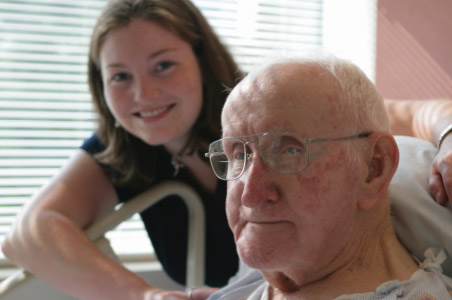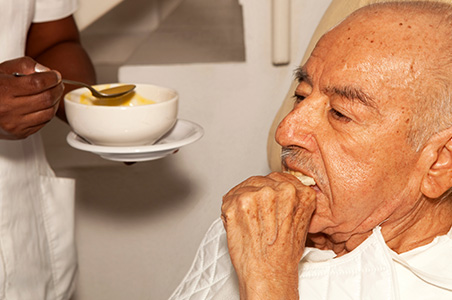The Australian Commission on Safety and Quality in Health Care has published three new resources: an Intellectual Disability Actions for Clinicians Fact Sheet, With Me – Intellectual Disability Actions for Clinicians and About Me – Questions to ask about Reasonable Adjustments Fact Sheet.
Read more about Intellectual disability and inclusive health care on the Commission’s website.
During COVID-19 people with cognitive impairment may find hospital even more frightening than usual. At this time, clinicians and visitors are using personal protective equipment (PPE) and there may be restrictions on family and carers who are usually there to support them.
In recognition of this changed environment, the Australian Commission on Safety and Quality in Health Care (the Commission) has developed new resources to support health service organisations to provide safe care for people with cognitive impairment during COVID-19.
Key actions from the National Safety and Quality Health Service (NSQHS) Standards that are being implemented by health service organisations to support safe, high quality care for people with cognitive impairment remain crucial at this time. These key actions include:
The Commission acknowledges the contribution of people with dementia, carers, clinicians and researchers in the development of these resources.
The new resources are:
Safe care for people with cognitive impairment during COVID-19: Poster
Safe hospital care for people with cognitive impairment during COVID-19: Fact Sheet for clinicians
This site is designed to support health service organisations that are assessed to the National Safety and Quality Health Service (NSQHS) Standards to improve the recognition of and response to people with cognitive impairment.
Our aim is to provide better outcomes and experiences for people with cognitive impairment, their loved ones, and staff who care for them in health service organisations. By improving our knowledge and care practices, we can reduce the risk of harm.
New cognitive impairment resources aligned to the second edition of the NSQHS Standards are now available on the Commission’s website.
People with cognitive impairment are at increased risk of preventable complications. Cognitive impairment is common, but is often not identified, or it is dismissed or misdiagnosed. We may dismiss symptoms of delirium as a normal part of ageing, or as dementia, potentially preventing us from taking action. We may not understand what a person is experiencing, which increases their distress.
The first step to making a person’s stay safer is to understand the different forms of cognitive impairment, the people who are at risk, and what we need to be alert to.

People with cognitive impairment are at increased risk of adverse events and preventable complications. We can minimise harm if we recognise cognitive impairment and act.
We can prevent delirium with the right response to those at risk, and we can ask families to help.

There are simple steps we can all take to keep people safe from the potential impact of cognitive impairment.
We can all make a difference.
This website has extensive resources to help.

Everyone who cares for people with cognitive impairment can commit to cognitive care – people living with cognitive impairment, carers, family members and other support people, doctors, nurses, allied health professionals, health service managers, and care and support staff.
Champions are in hospitals, in primary health, in the community and in residential care.

As an individual, we can take action. Health service organisations can put systems in place for better care. Be prepared for the National Safety and Quality Health Service (NSQHS) Standards (second edition).

Everyone has a role. Learn about cognitive impairment. Learn from others. Be part of the community making a difference.


Play now


Play now

Play now

Play now